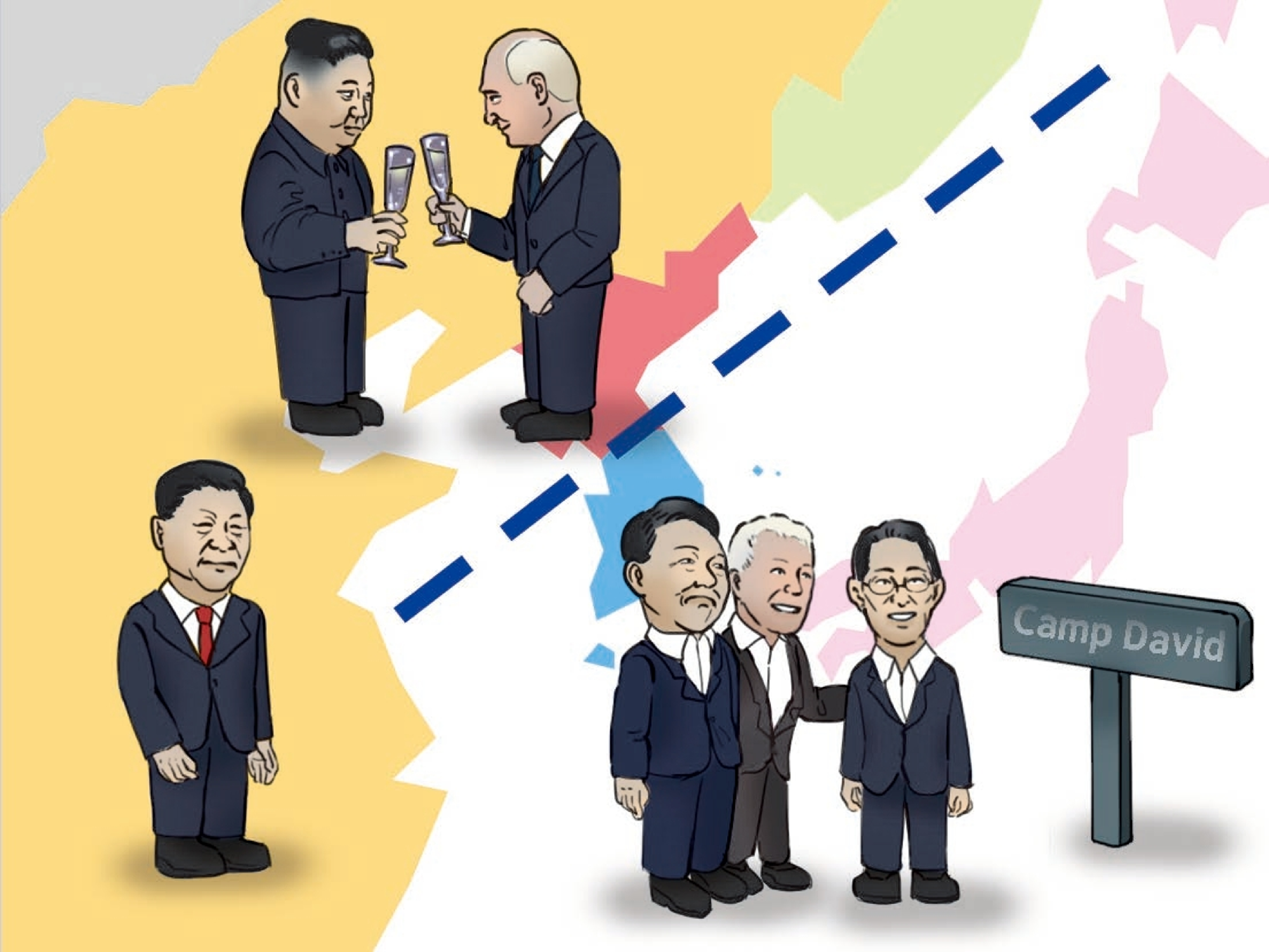

Kim Jong-Un Visits Vladimir Putin in Russia for Military Cooperation
On September 12, North Korea Leader Kim Jong-Un met with Vladimir Putin for arms talks at Russian spaceport. The two isolated leaders discussed North Korea providing ammunition to Russia, which would be used in the Ukraine War.
Kim and Putin have been the biggest threat to world security. Their actions on the world stage have led to their isolation, and their cooperation is to further mutual interests. Russia faces ammunition shortages and limited options for trading arms, making North Korea a key partner. In return, North Korea seeks Russian technology so that it can develop cutting-edge technology weapons such as long-range missiles, hypersonic ballistic weapons, nuclear-powered submarines, and spy satellites, as reported by Korea Institute for National Unification. With regards to his meeting with Putin, Kim remarked, "I am certain that the Russian people and its military will emerge victorious in the fight to punish the evil forces that ambitiously pursue hegemony and expansion. I will always be standing with Russia."
Purchasing munitions from North Korea violates a United Nations Security Council resolution. On September 11, the Ministry of Foreign Affairs for the Republic of Korea released an announcement stating that Foreign Minister Park Jin engaged in a bilateral discussion with Russian Foreign Minister Sergay Lavrov on the sidelines of the G20 summit in India on September 10 (IST). Speaking on Russia's role in inter-Korean relations, FM Park said North Korea's recent friendly relations with Russia pose a threat to global security, and both countries should immediately stop this behavior and contribute to world peace.
South Korea, the United States, and Japan Issue Joint Statement on Trilateral Defense Alliance
On August 18, South Korean President Yoon Suk-Yeol, US President Joe Biden, and Japanese Prime Minister Fumio Kishida gathered at Camp David in Maryland to set up a military alliance between the three countries. President Biden concluded the talks by saying, "The trilateral ties between Japan, the Republic of Korea and the United States will make the world safer and the three countries stronger."
The three nations agreed to strengthen their defense cooperation, which will involve launching annual multi-domain military exercises to bring the trilateral cooperation to unprecedented levels. South Korea, the United States, and Japan decided to expand their cooperation in defense, economic security, and the transition to green energy.
International Situation in the Northeast Asia Enters New Phase
As strategic competition between the US and China grows, both countries are actively seeking allies in their race for global hegemony. Conspicuously, North Korea has aligned itself with China and Russia, which is likely to result in a diplomatic counter-alliance in the Indo-Pacific.
It is risky for South Korea to turn its back on China, given China’s status as South Korea’s biggest trade partner. At the same time, South Korea should strengthen the alliance with the United States.
Could this situation be the start of a new cold war, pitting capitalist countries (South Korea, United States, and Japan) against communist nations (North Korea, China, and Russia)? Distance remains between the two Koreas, which have been seperated by world powers since the Korean War.
Reporter,
Seunghoe Koo rokeet@seoultech.co.kr


 Comment 0
Comment 0 Posts containing profanity or personal attacks will be deleted
Posts containing profanity or personal attacks will be deleted